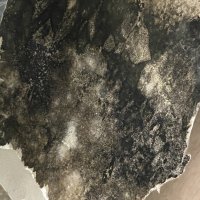- Mold Toxicity, Biotoxin Illness & CIRS
- What is CIRS? Causes, Symptoms and Diagnosis

What is CIRS? Causes, Symptoms and Diagnosis
Articles
- Anxiety/Depression
- Biotoxin Illness
- Brain Fog
- Chronic Fatigue
- Chronic Pain
- CIRS - Chronic Inflammatory Response Syndrome
- Constipation
- Diarrhea
- Digestive Issues
- Fibromyalgia
- Food Sensitivities
- Genetics
- Headaches
- Infections
- Joint Pain
- Lyme Disease
- MCS (Multiple Chemical Sensitivities)
- Memory Loss
- Mold Toxicity
What is CIRS? Causes, Symptoms and Diagnosis
Chronic Inflammatory Response Syndrome (CIRS) is a health condition also referred to as mold biotoxin illness which is when the immune system becomes over reactive and weakened in response to biotoxin exposure. A variety of factors can contribute to CIRS, including genetics, environmental exposures, mold exposure, toxin exposure like mycotoxins produced by mold and various pathogens. Symptoms often vary widely from person to person but typically include chronic fatigue, chronic headaches, joint pain, cognitive impairment, gastrointestinal issues, and numerous other symptoms.
Diagnosis of chronic inflammatory response syndrome requires health providers to be knowledgeable of CIRS symptoms, risk factors and the right testing as CIRS is a multi-symptom illness that can mimic many other chronic diseases. CIRS is NOT the same as a mold allergy and unfortunately both terms sometimes get used interchangeably.
CIRS treatment typically involves multiple interventions like detoxification protocols and lifestyle modifications. Successful treatment of CIRS also requires health providers who are knowledgeable in mold illness and understand the proper testing/treatment in order for CIRS patients to get better.
Since chronic inflammatory response syndrome (CIRS) is a multi-symptom illness which overlaps with many common chronic diseases involving the immune system it's usually not diagnosed or treated by standard conventional physicians. Unfortunately, if CIRS is not properly diagnosed, patients can be often misdiagnosed with another chronic disease that has an unknown "underlying cause." Some of the common misdiagnoses of CIRS are chronic fatigue syndrome, fibromyalgia, depression, irritable bowel syndrome, multiple sclerosis, depression, and post-traumatic stress disorder.
CIRS can affect virtually any organ system throughout the body and a misdiagnosis of CIRS can lead to long-term untreated toxicity and unnecessary suffering. Misdiagnosis also leads to treating patients with long-term prescriptions as "symptom management" instead of addressing the underlying cause of CIRS.
CIRS and Biotoxin Illness
CIRS is also known as a biotoxin illness. It is caused by an abnormal innate immune system response triggered by exposure to certain biotoxins like mycotoxins produced by mold and other environmental toxins, leading to both physical and neurological symptoms.

What are the Triggers for CIRS?
CIRS triggers are often from excessive mold exposure or other environmental toxins which can lead to severe symptoms from an overactive immune system. This is often the result of being in water-damaged buildings, exposure to mold mycotoxins, and/or various pathogens.
CIRS can also be triggered by tick-borne illnesses such as Lyme Disease and other co-infections. CIRS can often be misdiagnosed as other health issues due to its wide range of symptoms, which makes it essential for patients and their doctors to be aware of the potential signs and causes of this condition to get a proper CIRS diagnosis.
CIRS and Chronic Health Conditions
Common health conditions sometimes mistaken for CIRS include allergies, autoimmune diseases, depression, chronic fatigue syndrome, fibromyalgia, Lyme disease, and multiple chemical sensitivities (MCS) among many other chronic diseases. These conditions share many symptoms with CIRS but have distinct differences in terms of diagnosis and successful treatment.
Since CIRS can cause a wide range of symptoms from systemic inflammation, this makes it nearly impossible for health providers not knowledgeable in CIRS to properly diagnose and treat CIRS patients successfully. Having the right health provider capable and knowledgeable of proper testing and treatment can help ensure a proper diagnosis so the best possible course of treatment can be pursued. And ultimately the resolution of symptoms as quickly as possible.
CIRS can cause multiple symptoms which can affect individuals differently. Some of the common symptoms include chronic fatigue, headaches, brain fog, cognitive difficulties, excessive thirst, frequent urination, joint pain, and light sensitivity. These symptoms of CIRS can even make it difficult to perform everyday tasks like exercise, walking and even thinking.
What are CIRS symptoms?
Chronic inflammatory response syndrome symptoms vary greatly from person to person. Below is a longer list of CIRS symptoms:
-
- Fatigue
-
- Weakness
-
- Cognitive impairment/impaired memory
-
- Disorientation
-
- Brain Fog
-
- Decreased assimilation of knowledge
-
- Metallic taste in the mouth
-
- Difficulty concentrating
-
- Static shocks
-
- Skin sensitivity
-
- Muscle cramps/morning stiffness
-
- Muscle and joint pains
-
- Morning stiffness
-
- Body aches
-
- Headaches/migraines
-
- Light sensitivity
-
- Sleep disturbances
-
- Difficulty regulating body temperature
-
- Food intolerances
-
- Intestinal issues such as gas, bloating, constipation diarrhea and leaky gut syndrome
-
- Sinus congestion or allergies that don’t respond to treatment
-
- Night sweats
-
- Appetite swings
-
- Hormonal Imbalances
-
- Excessive thirst/increased urinary frequency
-
- Unexplained weight loss or gain
CIRS and Immune System
Although the immune system in CIRS is over reactive, the immune system is also weakened from Chronic Inflammatory Response Syndrome (CIRS). The body's natural response mechanism is bogged down by toxins and inflammation that prevents the immune system from providing adequate protection against many other infections and chronic diseases.
Most important, CIRS causes a wide variety of troublesome symptoms that will negatively affect the quality of life of anyone left untreated.
What causes chronic inflammatory response syndrome?
Chronic inflammatory response syndrome (CIRS) is an illness characterized by multiple symptoms resulting from exposure of one's body or system to biotoxins including mycotoxins, inflammatory pathogens, and volatile organic compounds (VOCs). The root cause of CIRS is the toxicity of common substances such as mycotoxins from mold, exposure to water-damaged buildings, pollution, and industrial chemical products. These biotoxins are what cause the immune system to go haywire resulting in the numerous debilitating symptoms.

Genetic susceptibility and CIRS
There is a genetic component to chronic inflammatory response syndrome. In fact, around 1 out of 4 people are at risk for developing CIRS due to their HLA haplotype (genetic marker) and can become severely ill when exposed to water-damaged buildings. HLA haplotypes can be determined with HLA-DR genetic testing. Those who are genetically susceptible to CIRS have immune systems unable to detect and remove biotoxins effectively from the body. These biotoxins can actually recirculate in the body for years keeping the immune system in overdrive causing ongoing systemic inflammation. This can be very debilitating and a lifelong problem if not diagnosed and treated correctly.
It is important to note that being genetically susceptible does not cause CIRS. CIRS is triggered by biotoxin exposure and being genetically susceptible poses a much higher risk of getting sick with CIRS, and treatment can take longer but these genetics do not limit someone from getting better.
Again, it is absolutely critical for patients affected by chronic inflammatory response syndrome (CIRS) to be properly diagnosed and treated to prevent lifelong suffering or a misdiagnosis with another chronic disease. Simply receiving a diagnosis of something like "chronic fatigue syndrome" and treating the symptoms will not help someone dealing with CIRS.
Chronic Inflammatory Response Syndrome: Diagnosis and Treatment
How do doctors test for CIRS?
Doctors and qualified health providers may use a combination of blood tests, risk factors, and various tools to assist with diagnosing chronic inflammatory response syndrome. Mycotoxin lab testing is usually ordered which measures the type and quantity of mycotoxins from mold in the body to help determine severity of a possible mold exposure. Organic acids testing is also used to help assess imbalances, toxicity, infections, absorption, and inflammation. Certain lab markers will also help determine if there is active mold growth inside the body which can be in the nasal cavity, sinuses, or digestive tract.
CIRS Lab Tests
Additionally, the following blood tests are also used to help determine a positive CIRS diagnosis and visualize how the body is being affected.
-
- ADH/Osmolality (excessive thirst)
-
- C3a
-
- Complement C4a Plasma
-
- Leptin
-
- Matrix Metalloproteinase-9 (MMP-9)
-
- MSH - Melanocyte Stimulating Hormone
-
- TGF Beta-1 - Transforming Growth Factor Beta-1
-
- Vascular Endothelial Growth Factor (VEGF)
What can trigger CIRS?
One of the most common triggers of CIRS is exposure to water-damaged buildings. Often times patients will feel ill and not know what is causing the CIRS symptoms. Water-damaged can occur in a work office setting or in the home. Sometimes people aren't aware of any water damage or mold exposure, but it is important to know that mold has been found behind walls making people sick. This is a very common problem.
Is CIRS a real disease?
CIRS is an autoimmune disease that can cause numerous symptoms triggered by biotoxins — commonly mold. Dr. Ritchie Shoemaker drew up a term for CIRS which relates to immune system dysfunctions. Unfortunately, many conventional health providers are not aware of chronic inflammatory response syndrome and will often say to patients "There's nothing wrong," "It's all in your head," send them to a psychiatrist or even worse, diagnose them with another chronic disease in which only symptoms will be treated.
How to treat chronic inflammatory response syndrome
Treatment of CIRS
The first step in CIRS treatment is of course to eliminate the source of the problem like environmental mold exposure. Being chronically exposed to mold & biotoxins will significantly halt or prevent people from getting better even when being treated. It is critical to get out of water-damaged buildings and/or initiate remediation of toxic mold immediately to prevent serious health issues in the future.
Depending on the patient and the provider, CIRS treatment can involve prescription medicines. An integrative approach can also involve prescription medications but emphasizes altering diet to inhibit possible mold growth within the body, as well as using n-acetyl cysteine (NAC), antioxidants such as glutathione, and various types of binders to eliminate toxic mycotoxins from the body.
Mycotoxin Binders
Certain binders work better with certain biotoxins. The toxins found to be present in the body can help determine which binders are most appropriate. Some toxin binders that are often used to help facilitate the removal of these biotoxins are:
-
- Bentonite Clay
-
- Activated Charcoal
-
- Zeolite
-
- Humic Acid
-
- Apple pectin
-
- Modified Citrus Pectin
-
- Chlorella
-
- Cholestyramine, and/or Welchol (prescription used as binder medications)
Biotoxin levels must be significantly reduced/eliminated for the body to have a fighting chance of getting to the source of the problem.

Why is CIRS or Mold Illness Often Misdiagnosed?
CIRS or mold illness is often misdiagnosed because it can resemble a wide range of common symptoms that can be identical to symptoms in other chronic diseases. Additionally, many doctors and health providers are unfamiliar with this condition and the proper testing involved which limits patients to getting an accurate diagnosis.
What Else Should You Know About CIRS?
To summarize, most conventional medical doctors are not aware of chronic inflammatory response syndrome, the proper testing, treatment and association of mold illness which can result in patients never receiving an accurate diagnosis. Misdiagnosing CIRS as chronic fatigue syndrome, fibromyalgia, a psychological condition, or some other chronic disease only leads to long-term reliance on symptom management prescriptions, rather than addressing the underlying causes.
All of these factors make it difficult if not impossible for conventional physicians to properly identify, test and treat CIRS in patients who have been exposed to water-damaged buildings, biotoxins like mycotoxins, and various pathogens.
It is critical for CIRS patients to understand their own risk factors, potential mold exposure, as well as other chronic health conditions to get the right help they need. Finally, seeing the right doctor is crucial in order to help identify and treat the underlying condition of the symptoms successfully.
Chronic inflammatory response syndrome or CIRS is a health condition also referred to as mold biotoxin illness which is when the immune system becomes over reactive and weakened in response to biotoxin exposure. A variety of factors can contribute to CIRS, including genetics, environmental exposures, mold exposure, toxin exposure like mycotoxins produced by mold and various pathogens. Symptoms often vary widely from person to person but typically include chronic fatigue, chronic headaches, joint pain, cognitive impairment, gastrointestinal issues, and numerous other symptoms.
Diagnosis of chronic inflammatory response syndrome requires health providers to be knowledgeable of CIRS symptoms, risk factors and the right testing as CIRS is a multi-symptom illness that can mimic many other chronic diseases. CIRS is NOT the same as a mold allergy and unfortunately both terms sometimes get used interchangeably.
CIRS treatment typically involves multiple interventions like detoxification protocols and lifestyle modifications. Successful treatment of CIRS also requires health providers who are knowledgeable in mold illness and understand the proper testing/treatment in order for CIRS patients to get better.
Since chronic inflammatory response syndrome (CIRS) is a multi-symptom illness which overlaps with many common chronic diseases involving the immune system it's usually not diagnosed or treated by standard conventional physicians. Unfortunately, if CIRS is not properly diagnosed, patients can be often misdiagnosed with another chronic disease that has an unknown "underlying cause." Some of the common misdiagnoses of CIRS are chronic fatigue syndrome, fibromyalgia, depression, irritable bowel syndrome, multiple sclerosis, depression, and post-traumatic stress disorder.
CIRS can affect virtually any organ system throughout the body and a misdiagnosis of CIRS can lead to long-term untreated toxicity and unnecessary suffering. Misdiagnosis also leads to treating patients with long-term prescriptions as "symptom management" instead of addressing the underlying cause of CIRS.
CIRS and Biotoxin Illness
CIRS is also known as a biotoxin illness. It is caused by an abnormal innate immune system response triggered by exposure to certain biotoxins like mycotoxins produced by mold and other environmental toxins, leading to both physical and neurological symptoms.

What are the Triggers for Chronic Inflammatory Response Syndrome?
CIRS triggers are often from excessive mold exposure or other environmental toxins which can lead to severe symptoms from an overactive immune system. This is often the result of being in water-damaged buildings, exposure to mold mycotoxins, and/or various pathogens.
CIRS can also be triggered by tick-borne illnesses such as Lyme Disease and other co-infections. CIRS can often be misdiagnosed as other health issues due to its wide range of symptoms, which makes it essential for patients and their doctors to be aware of the potential signs and causes of this condition to get a proper CIRS diagnosis.
CIRS and Chronic Health Conditions
Common health conditions sometimes mistaken for CIRS include allergies, autoimmune diseases, depression, chronic fatigue syndrome, fibromyalgia, Lyme disease, and multiple chemical sensitivities (MCS) among many other chronic diseases. These conditions share many symptoms with CIRS but have distinct differences in terms of diagnosis and successful treatment.
Since CIRS can cause a wide range of symptoms from systemic inflammation, this makes it nearly impossible for health providers not knowledgeable in CIRS to properly diagnose and treat CIRS patients successfully. Having the right health provider capable and knowledgeable of proper testing and treatment can help ensure a proper diagnosis so the best possible course of treatment can be pursued. And ultimately the resolution of symptoms as quickly as possible.
CIRS can cause multiple symptoms which can affect individuals differently. Some of the common symptoms include chronic fatigue, headaches, brain fog, cognitive difficulties, excessive thirst, frequent urination, joint pain, light sensitivity and intestinal symptoms. These symptoms of CIRS can even make it difficult to perform everyday tasks like exercise, walking and even thinking.
What are CIRS symptoms?
Chronic inflammatory response syndrome symptoms vary greatly from person to person. Below is a longer list of CIRS symptoms:
-
- Fatigue
-
- Weakness
-
- Cognitive impairment/impaired memory
-
- Disorientation
-
- Brain Fog
-
- Decreased assimilation of knowledge
-
- Metallic taste in the mouth
-
- Difficulty concentrating
-
- Static shocks
-
- Skin sensitivity
-
- Muscle cramps/morning stiffness
-
- Muscle and joint pains
-
- Morning stiffness
-
- Body aches
-
- Headaches/migraines
-
- Light sensitivity
-
- Sleep disturbances
-
- Difficulty regulating body temperature
-
- Food intolerances
-
- Intestinal issues such as gas, bloating, constipation diarrhea and leaky gut syndrome
-
- Sinus congestion or allergies that don’t respond to treatment
-
- Night sweats
-
- Appetite swings
-
- Hormonal Imbalances
-
- Excessive thirst/increased urinary frequency
-
- Unexplained weight loss or gain
CIRS and Immune System
Although the immune system in CIRS is over reactive, the immune system is also weakened from CIRS. The body's natural response mechanism is bogged down by toxins and inflammation that prevents the immune system from providing adequate protection against many other infections and chronic diseases.
Most important, CIRS causes a wide variety of troublesome symptoms that will negatively affect the quality of life of anyone left untreated.
What causes CIRS?
Chronic inflammatory response syndrome (CIRS) is an illness characterized by multiple symptoms resulting from exposure of one's body or system to biotoxins including mycotoxins, inflammatory pathogens, and volatile organic compounds (VOCs). The root cause of CIRS is the toxicity of common substances such as mycotoxins from mold, exposure to water-damaged buildings, pollution, and industrial chemical products. These biotoxins are what cause the immune system to go haywire resulting in the numerous debilitating symptoms.

Genetic susceptibility and CIRS
There is a genetic component to CIRS. In fact, around 1 out of 4 people are at risk for developing CIRS due to their HLA haplotype (genetic marker) and can become severely ill when exposed to water-damaged buildings. HLA haplotypes can be determined with HLA-DR genetic testing. Those who are genetically susceptible to CIRS have immune systems unable to detect and remove biotoxins effectively from the body. These biotoxins can actually recirculate in the body for years keeping the immune system in overdrive causing ongoing systemic inflammation. This can be very debilitating and a lifelong problem if not diagnosed and treated correctly.
It is important to note that being genetically susceptible does not cause CIRS. CIRS is triggered by biotoxin exposure and being genetically susceptible poses a much higher risk of getting sick with CIRS, and treatment can take longer but these genetics do not limit someone from getting better.
Again, it is absolutely critical for patients affected by CIRS to be properly diagnosed and treated to prevent lifelong suffering or a misdiagnosis with another chronic disease. Simply receiving a diagnosis of something like "chronic fatigue syndrome" and treating the symptoms will not help someone dealing with CIRS.
Chronic Inflammatory Response Syndrome: Diagnosis and Treatment
How do doctors test for CIRS?
Doctors and qualified health providers may use a combination of blood tests, risk factors, and various tools to assist with diagnosing CIRS. Mycotoxin lab testing is usually ordered which measures the type and quantity of mycotoxins from mold in the body to help determine severity of a possible mold exposure. Organic acids testing is also used to help assess imbalances, toxicity, infections, absorption, and inflammation. Certain lab markers will also help determine if there is active mold growth inside the body which can be in the nasal cavity, sinuses, or digestive tract.
CIRS Lab Tests
Additionally, the following blood tests are also used to help determine a positive CIRS diagnosis and visualize how the body is being affected.
-
- ADH/Osmolality (excessive thirst)
-
- C3a
-
- Complement C4a Plasma
-
- Leptin
-
- Matrix Metalloproteinase-9 (MMP-9)
-
- MSH - Melanocyte Stimulating Hormone
-
- TGF Beta-1 - Transforming Growth Factor Beta-1
-
- Vascular Endothelial Growth Factor (VEGF)
What can trigger CIRS?
One of the most common triggers of CIRS is exposure to water-damaged buildings. Often times patients will feel ill and not know what is causing the CIRS symptoms. Water-damaged can occur in a work office setting or in the home. Sometimes people aren't aware of any water damage or mold exposure, but it is important to know that mold has been found behind walls making people sick. This is a very common problem.
Is CIRS a real disease?
CIRS is an autoimmune disease that can cause numerous symptoms triggered by biotoxins — commonly mold. Dr. Ritchie Shoemaker drew up a term for CIRS which relates to immune system dysfunctions. Unfortunately, many conventional health providers are not aware of chronic inflammatory response syndrome and will often say to patients "There's nothing wrong," "It's all in your head," send them to a psychiatrist or even worse, diagnose them with another chronic disease in which only symptoms will be treated.
How to treat CIRS
Treatment of CIRS
The first step in CIRS treatment is of course to eliminate the source of the problem like environmental mold exposure. Being chronically exposed to mold & biotoxins will significantly halt or prevent people from getting better even when being treated. It is critical to get out of water-damaged buildings and/or initiate remediation of toxic mold immediately to prevent serious health issues in the future.
Depending on the patient and the provider, CIRS treatment can involve prescription medicines. An integrative approach can also involve prescription medications but emphasizes altering diet to inhibit possible mold growth within the body, as well as using n-acetyl cysteine (NAC), antioxidants such as glutathione, and various types of binders to eliminate toxic mycotoxins from the body.
Mycotoxin Binders
Certain binders work better with certain biotoxins. The toxins found to be present in the body can help determine which binders are most appropriate. Some toxin binders that are often used to help facilitate the removal of these biotoxins are:
-
- Bentonite Clay
-
- Activated Charcoal
-
- Zeolite
-
- Humic Acid
-
- Apple pectin
-
- Modified Citrus Pectin
-
- Chlorella
-
- Cholestyramine, and/or Welchol (prescription used as binder medications)
Biotoxin levels must be significantly reduced/eliminated for the body to have a fighting chance of getting to the source of the problem.

Why is CIRS or Mold Illness Often Misdiagnosed?
CIRS or mold illness is often misdiagnosed because it can resemble a wide range of common symptoms that can be identical to symptoms in other chronic diseases. Additionally, many doctors and health providers are unfamiliar with this condition and the proper testing involved which limits patients to getting an accurate diagnosis.
What Else Should You Know?
To summarize, most conventional medical doctors are not aware of chronic inflammatory response syndrome, the proper testing, treatment and association of mold illness which can result in patients never receiving an accurate diagnosis. Misdiagnosing CIRS as chronic fatigue syndrome, fibromyalgia, a psychological condition, or some other chronic disease only leads to long-term reliance on symptom management prescriptions, rather than addressing the underlying causes.
All of these factors make it difficult if not impossible for conventional physicians to properly identify, test and treat CIRS in patients who have been exposed to water-damaged buildings, biotoxins like mycotoxins, and various pathogens.
It is critical for CIRS patients to understand their own risk factors, potential mold exposure, as well as other chronic health conditions to get the right help they need. Finally, seeing the right doctor is crucial in order to help identify and treat the underlying condition of the symptoms successfully.
What is CIRS? Causes, Symptoms and Diagnosis Videos All Videos (3)
-
{{#owner}}
-
{{#url}}
{{#avatarSrc}}
{{name}} {{/url}} {{^url}} {{#avatar}} {{& avatar}} {{/avatar}} {{name}} {{/url}} - {{/owner}} {{#created}}
- {{created}} {{/created}}





















